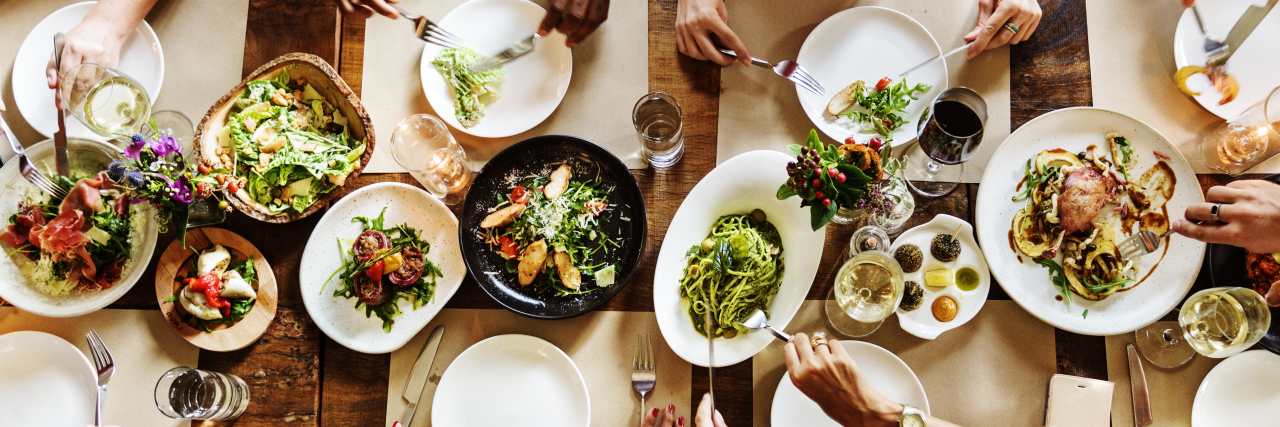When My Colleague Decided to Bring My Family Dinner Each Week
When I went on disability a few months ago, a colleague asked for some of my favorite restaurants and treats in case other staff members from my school wanted to get me something special.
A couple weeks ago, I received a text from a colleague. I will call her “Ellen.” She asked if she could bring dinner for my family and me. Ellen had apparently asked our co-worker about my favorite places to eat. She told me that she just wanted to do something nice.
I try to have dinner ready by the time my wife gets home from her job, but that usually does not happen. Due to the chronic pain caused by my rare disease of erythromelalgia and exacerbated by peripheral neuropathy and complex regional pain syndrome (CRPS), I do not get out of the house much. Even though I am home all the time, I usually feel so much pain and weakness that I cannot do much around the house. This often includes making dinner.
Bringing dinner might not seem like a big deal, but this one gesture demonstrated an overwhelming act of kindness. I literally cried.
Before Ellen left, she asked what else my family and I liked to eat. She said that she wanted to bring us dinner again. I demurred. She had already done more than I had ever expected. One meal was plenty; there was no need to bring more.
Ellen insisted, so my wife and I told her some of our favorite foods. Ellen left, and we enjoyed our dinner – not to mention leftovers the following evening.
About a week later, Ellen texted again and to let me know that she “was wondering if I can bring dinner for your family tomorrow night.” Working with her for five years, I have witnessed Ellen’s generosity often. So I knew that her request to bring food was more of a statement of fact than a request.
The next evening, she brought enough food for an army, and we had two days of leftovers. Before she left Ellen said, “I can’t bring dinner next Tuesday, so I’ll bring it Monday instead.”
I was floored and told her that she cannot bring a meal every week. It was very kind of her, but she has her own family. Again, Ellen insisted that she and her husband wanted to do this for us. She knew we have been having a difficult time, and wanted she make life a little easier for us.
People like Ellen are rare, and I feel lucky to have her in my family’s life. Many often shy away from interacting on a deeper basis with people who face illness. They don’t know what to say or do, so rather than offering help or creating conversation to foster understanding, they avoid it altogether. This is how people with chronic and rare conditions become more socially isolated.
I know Ellen cannot keep this up for long, and I am grateful for all that she has done already. Being away from work and finding myself stuck in the house has made me feel like I’m removed from the world. In addition to this seclusion, doing basic household chores has become extraordinarily difficult.
By bringing a meal, Ellen has broken up my solitude and blessed me and my family.
It is amazing how something as simple as a meal can make someone feel more hopeful — physically and emotionally.

